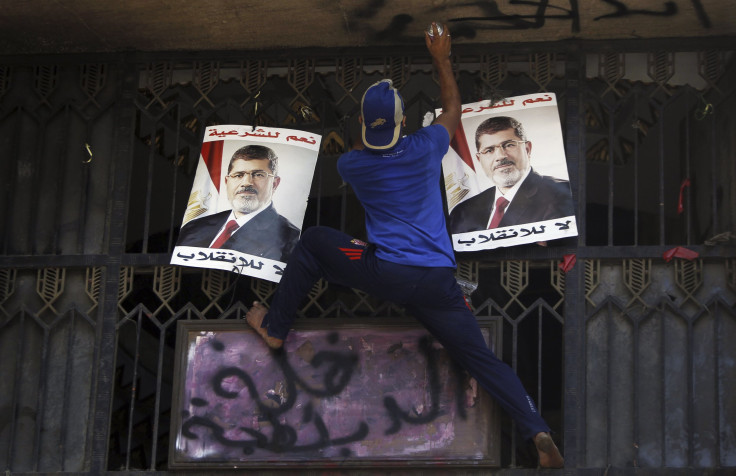Egypt Crisis: Government Claims Killings Of 36 Pro-Morsi Detainees In Custody Occurred During Prison Transfer

At least 36 supporters of deposed Egyptian President Mohamed Morsi were killed in custody, on Sunday, the Egyptian government has acknowledged.
However, conflicting reports have emerged about the circumstances that led to the killings, and according to Egypt’s interior ministry, the deaths occurred when a group of about 600 detainees were being transported to Abu Zaabal prison near Cairo, and they allegedly tried to escape during the transfer.
“Thirty-six of the prisoners died of suffocation and crowding after tear gas was used to stop their escape,” the interior ministry said, according to news reports.
But, Egypt’s state-run MENA news agency said a vehicle transporting the detainees came under attack from armed men, leading to a crisis situation, in which a police officer was taken hostage by the prisoners, and added that the casualties occurred in the subsequent gun battle.
Sources who spoke to Al Jazeera said prisoners tried to escape from the vehicle and took a police officer hostage, which caused security forces to open fire on the detainees, leading to the deaths.
Morsi’s Muslim Brotherhood, on Monday, issued a statement condemning the killings and questioning the government's claims.
“Notwithstanding the contradictory claims by the Ministry of the Interior, once saying they (protesters) choked on teargas, and then alleging they were shot dead, those citizens were, in any event, the responsibility of the Interior Ministry, which decided to betray its trust and ignore its role, and executed them for their opposition to the bloody military council.”
An Egyptian coalition of groups supporting Morsi, including the Brotherhood, demanded an international investigation into the killings, and held Egypt’s army chief Gen. Abdel Fattah al-Sisi and interior minister Mohamed Ibrahim responsible for the incident.
Ahmad Mefreh, a researcher at Karama, a humans rights organization, who was quoted by the Muslim Brotherhood on its official website, claimed Islamist protesters were “tortured and savagely beaten at Nasr City Police Stations” after they were taken into custody during the police crackdown of sit-ins last week, adding that the detainees were denied legal counsel and were given food and drink only once a day.
Mefreh said, according to the Brotherhood website, that guards in charge of detainees during transfers do not usually carry tear gas, adding that the interior ministry’s version of events was questionable.
“Also, regarding the interior ministry's version of events, the use of tear gas on that number of detainees in the confined space of a transfer truck is direct killing, not riot dispersal,” Mefreh said.
© Copyright IBTimes 2024. All rights reserved.












